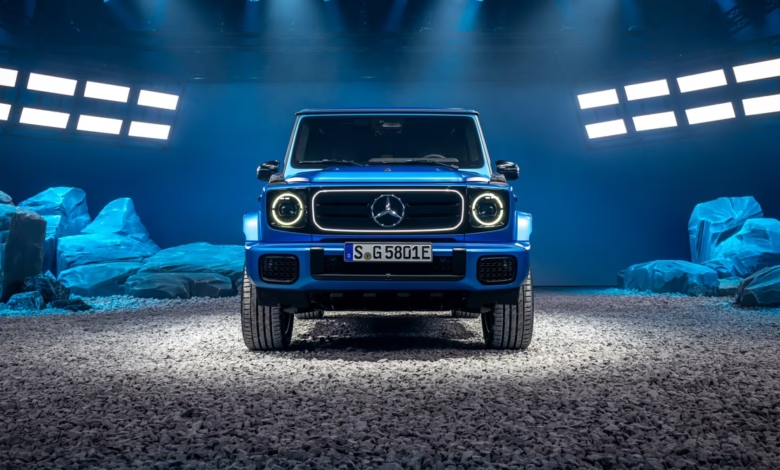Why Luxury Electric Cars Are Struggling to Succeed

▼ Summary
– The electric Mercedes G-Class SUV has seen extremely poor sales, with only 1,450 units sold in Europe through April, far below combustion variants.
– Legacy automakers like Ferrari, Porsche, and Audi are facing weak demand for luxury EVs, leading to delays, production cuts, and model discontinuations.
– High prices due to large battery requirements are a major barrier, with luxury EVs like the G-Wagen costing $162,000 and the upcoming EV Range Rover expected to exceed $180,000.
– Audi discontinued its Q8 E-tron and closed a Belgian factory, citing a global decline in demand for electric luxury vehicles.
– Mercedes may struggle to offset poor European sales of the G580 in the US due to potential 50% tariffs on imported European cars.
Luxury electric vehicles from premium automakers are facing unexpected headwinds despite the broader EV market’s rapid growth. High-end models like the electric Mercedes G-Class SUV and Porsche Taycan are struggling to find buyers, raising questions about the viability of electrification in the ultra-luxury segment.
Recent reports reveal dismal sales figures for the Mercedes G580, with only 1,450 units sold in Europe through April, far below the nearly 10,000 combustion-engine versions moved in the same period. Meanwhile, Ferrari has postponed its second EV model until at least 2028, citing weak demand, and Porsche has scaled back EV production due to sluggish sales of its electric Macan and Taycan. Even Audi discontinued its Q8 E-tron after closing its Belgian factory, blaming a “global decline in customer orders for electric luxury vehicles.”
The challenges stem from several factors. High battery costs significantly inflate the price of luxury EVs, making them prohibitively expensive even for affluent buyers. The electric G-Wagen, for instance, starts at $162,000, while the upcoming electric Range Rover is expected to exceed $180,000. These prices far outstrip their gasoline counterparts, eroding the value proposition for consumers.
Another issue is rapid depreciation. Some Porsche dealers reportedly refuse to take back used Taycans due to their steep value drops, leaving owners with limited resale options. Industry experts suggest that luxury buyers remain hesitant about EVs, preferring the proven performance and prestige of traditional combustion engines.
Despite these setbacks, automakers insist they remain committed to electrification. Mercedes-Benz, for example, emphasizes flexibility, stating it will continue offering both electric and combustion models well into the 2030s. However, the current struggles highlight a critical dilemma: convincing high-end buyers to embrace EVs may require more than just luxury branding, it demands compelling technology, competitive pricing, and sustained consumer confidence.
As the market evolves, legacy automakers must rethink their strategies to avoid being left behind in an increasingly electrified, but fiercely competitive landscape.
(Source: Wired)
